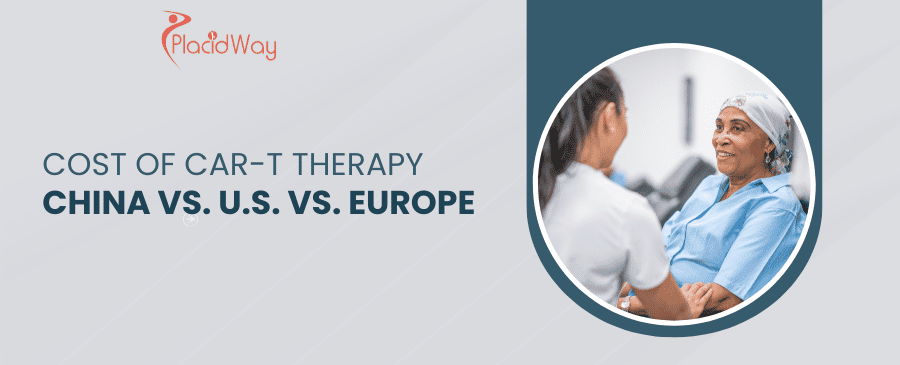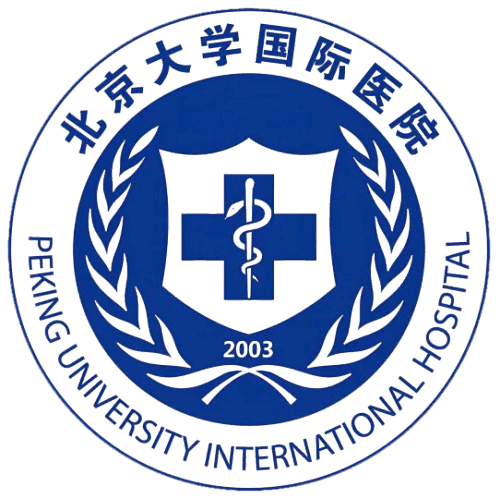
CAR-T cell therapy has transformed cancer treatment, offering new hope to patients with certain blood cancers. However, the cost of this revolutionary therapy varies significantly depending on the region. China, the United States, and Europe have different pricing structures influenced by production costs, healthcare policies, and accessibility. This article provides a detailed cost comparison, an overview of the CAR-T therapy procedure, patient testimonials, and factors affecting treatment costs.
Key Insights at a Glance
- CAR-T therapy in China is significantly cheaper than in the U.S. and Europe.
- Costs range from $55,000 in China to nearly $500,000 in the U.S.
- Insurance coverage varies by country, affecting out-of-pocket expenses.
- In-house production in Europe reduces treatment costs in some hospitals.
- CAR-T therapy involves multiple steps, from T-cell extraction to reinfusion.
What is CAR-T Therapy?
CAR-T therapy is a personalized cancer treatment that involves modifying a patient's T-cells to better recognize and attack cancer cells. It is particularly effective in treating acute lymphoblastic leukemia (ALL), non-Hodgkin lymphoma (NHL), and multiple myeloma.
The CAR-T Therapy Process
CAR-T therapy is complex and requires several steps:
- T-Cell Collection (Leukapheresis) – The patient's T-cells are extracted from the blood.
- Genetic Modification – In a lab, the T-cells are modified to express chimeric antigen receptors (CARs).
- Cell Expansion – The modified T-cells are multiplied until there are enough for treatment.
- Pre-Treatment Conditioning – The patient undergoes chemotherapy to prepare for CAR-T infusion.
- CAR-T Infusion – The modified T-cells are reintroduced into the patient's bloodstream.
- Post-Treatment Monitoring – Patients are monitored for side effects such as cytokine release syndrome (CRS) and neurotoxicity.
CAR-T Therapy Cost Comparison: China vs. U.S. vs. Europe
Cost of CAR-T Therapy in Different Regions
The cost of CAR-T therapy varies widely across different regions, influenced by factors such as manufacturing processes, healthcare infrastructure, regulatory policies, and economic conditions.
China
In China, CAR-T therapy has become increasingly accessible, with several domestically developed products approved for clinical use. The cost of these therapies ranges from approximately $150,000 to $450,000 per treatment. For instance, Fosun Kite Biotechnology's Axicabtagene Ciloleucel injection (FKC876) is priced at around 1.2 million RMB (approximately $187,000). Additionally, outcomes-based payment plans have been introduced to improve affordability, offering partial refunds to patients who do not achieve complete remission within a specified period.
United States
The United States offers several FDA-approved CAR-T therapies, with costs typically ranging from $373,000 to $475,000 per treatment. For example, Kymriah (tisagenlecleucel) is priced at approximately $373,000, while Yescarta (axicabtagene ciloleucel) costs around $373,000 per infusion. These prices often exclude additional expenses such as hospitalization, supportive care, and management of potential side effects, which can significantly increase the overall cost.
Europe
In Europe, the cost of CAR-T therapy varies by country and healthcare system. In countries like Spain, the cost can reach up to €370,000 (approximately $400,000). However, some European countries have developed in-house CAR-T production capabilities within public healthcare systems, significantly reducing costs. For instance, a network of Spanish hospitals has achieved self-sufficiency in producing CAR-T therapies, lowering the cost to less than €90,000 (approximately $100,000) per patient.
Below is a breakdown of estimated costs:
| Region | Estimated Cost (USD) | Key Notes |
|---|---|---|
| China | $55,000 - $450,000 | Lower costs due to domestic production and government support. |
| United States | $373,000 - $475,000 | Highest cost due to expensive production and healthcare expenses. |
| Europe | $100,000 - $400,000 | Varies by country; some hospitals produce CAR-T cells in-house, reducing costs. |
Why is CAR-T Therapy More Affordable in China?
- Domestic Production: Many hospitals in China produce CAR-T cells locally, reducing manufacturing costs.
- Government Support: Some regions in China offer financial aid or insurance coverage for CAR-T therapy.
- Lower Healthcare Costs: Medical expenses in China are generally lower than in the U.S. and Europe.
What Influences CAR-T Therapy Costs?
Several factors impact the cost of CAR-T therapy worldwide:
Manufacturing Costs
- CAR-T cell production is expensive due to the gene-editing technology, laboratory processing, and strict quality control required.
- In the U.S., CAR-T production is outsourced to specialized biotech firms, increasing costs.
- In China and some European hospitals, in-house production lowers expenses.
Hospital and Medical Fees
- Treatment includes hospital stays, doctor consultations, chemotherapy, and post-treatment care.
- The U.S. has higher hospital and doctor fees, while China has more affordable healthcare services.
Insurance and Reimbursement Policies
- United States: Medicare and private insurers cover CAR-T therapy, but patients often face out-of-pocket costs.
- Europe: Some public healthcare systems fully cover CAR-T therapy, while others require patient contributions.
- China: Insurance coverage is limited, though government programs are expanding access.
Side Effect Management
- CAR-T therapy can cause cytokine release syndrome (CRS) and neurological toxicity, requiring hospitalization.
- Managing side effects can add $50,000 - $100,000 to the total cost, especially in the U.S.
Patient Experiences with CAR-T Therapy in China
Patients undergoing CAR-T therapy in China share diverse experiences, from hope and remission success to challenges with side effects and financial burdens. Here are some firsthand perspectives:
Li Wei (Leukemia Survivor, 42)
"After failing chemotherapy twice, I turned to CAR-T therapy in Beijing. The initial days were tough—fever, fatigue, and weakness—but within weeks, my blood counts improved. Today, I am in remission and grateful for this treatment."
Zhang Mei (Lymphoma Patient, 55)
"CAR-T therapy saved my life, but the side effects were intense. I had severe cytokine release syndrome (CRS) and had to be in intensive care for days. Thankfully, my doctors acted fast. Now, I am recovering well, but the emotional stress was overwhelming."
Chen Hao (Multiple Myeloma Patient, 60)
"I traveled from my province to Shanghai for CAR-T therapy because my local hospital didn’t offer it. The cost was high, and insurance covered only part of it, but I had no other options. Three months later, my cancer is undetectable, and I hope it stays that way."
Wang Jia (Lymphoma Survivor, 38)
"The treatment worked, but I still feel weak and sometimes forget things. Doctors told me some side effects might last months. Despite this, CAR-T therapy gave me another chance at life when nothing else did."
Sun Lei (Caregiver for Father, 67)
"Watching my father go through CAR-T was nerve-wracking. The therapy worked, but the recovery was slow. It was also expensive, and we had to rely on family savings. Still, seeing him cancer-free today makes it all worth it."
Common Themes in Patient Experiences
- Hope and Remission: Many patients experience significant cancer reduction or remission.
- Challenging Side Effects: Fever, fatigue, memory issues, and CRS are common during treatment.
- Financial Burden: Some patients struggle with high costs, as insurance coverage in China is still limited.
- Limited Accessibility: Many patients travel to major cities for CAR-T therapy, as not all hospitals offer it.
Is CAR-T Therapy Worth the Cost?
Despite the high price, CAR-T therapy offers high remission rates for patients who have failed other treatments. Studies show:
- 60-90% remission rates in leukemia and lymphoma patients.
- Long-term survival improvements, reducing the need for additional treatments.
- Potential cure for some blood cancers, making it a life-changing option.
How to Reduce Costs?
- Look for Clinical Trials: Some hospitals offer free or reduced-cost CAR-T therapy for clinical trial participants.
- Explore Insurance Options: Check if your insurance covers part of the treatment.
- Consider Treatment in China or Europe: If costs are too high in the U.S., some patients explore international treatment options.
FAQs About CAR-T Therapy Costs
Why is CAR-T therapy so expensive?
CAR-T therapy involves complex genetic engineering, laboratory processing, and specialized medical care, which increase costs.
Does insurance cover CAR-T therapy?
In the U.S., Medicare and some private insurers cover CAR-T therapy. In Europe, coverage depends on the country. In China, coverage is still limited but improving.
Can I get CAR-T therapy at a lower cost?
Some hospitals in China and Europe offer more affordable options. Clinical trials may also provide access to CAR-T therapy at a reduced cost.
How long does the CAR-T therapy process take?
The full process, from T-cell collection to post-treatment monitoring, takes 4-6 weeks on average.
What are the biggest risks of CAR-T therapy?
The most common risks are cytokine release syndrome (CRS) and neurological side effects, which require hospitalization in some cases.
Can international patients receive CAR-T therapy in China?
Yes, some Chinese hospitals accept international patients for CAR-T therapy at lower costs than in the U.S.
How effective is CAR-T therapy?
Success rates vary, but many patients achieve remission after CAR-T therapy, making it one of the most promising cancer treatments available.
Why Choose PlacidWay for CAR-T Therapy in China?
- Trusted Global Medical Tourism Platform – PlacidWay connects international patients with top-quality healthcare providers in China.
- Personalized Guidance – Dedicated patient coordinators help you navigate the entire treatment process.
- Cost Transparency – Get clear information on treatment pricing without hidden fees.
- Accredited Medical Facilities – Partnering with well-established institutions that specialize in CAR-T therapy.
- Multi-Language Assistance – Overcoming language barriers with professional translation and interpretation services.
- Efficient Treatment Coordination – Faster appointment scheduling and streamlined communication with specialists.
- Post-Treatment Follow-Up – Continued support and medical consultation after returning home.
Take the Next Step Toward Life-Changing Cancer Treatment
If you or a loved one is considering CAR-T therapy in China, PlacidWay is here to guide you every step of the way. Our expert team will help you find the right treatment options, coordinate logistics, and ensure a smooth medical journey.Contact us today for a free consultation and explore how CAR-T therapy in China can help you on your road to recovery.


.png)


Share this listing